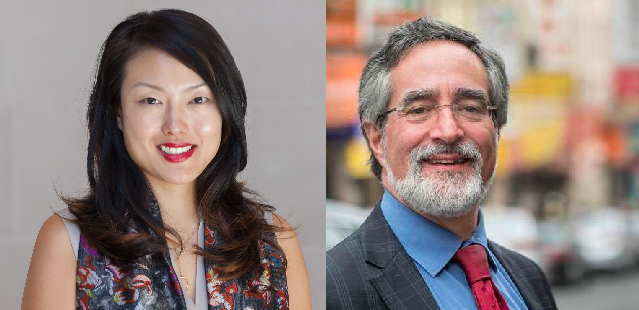Most of the city seems to be on Spring Break this week; the supes aren’t meeting, most of the commissions aren’t meeting, and the public schools are closed. But the City Planning Commission will be in session Thursday/31 and will hear the proposal by Sups. Jane Kim and Aaron Peskin to double the amount of affordable housing that private developers have to provide.
The legislation is complicated, and includes different provisions for grandfathering in projects that are already in the planning pipeline. You can read all the details here. But the bottom line is that projects that now only have to offer 12 percent below-market-rate units would have to offer 25 percent, and that number could be changed any time by the supervisors.

There’s also a mandate that the city controller do a study on how much these developers can actually afford to pay – and if it’s done well, it will add a lot to the debate.
Oz Erickson, chair of The Emerald Fund and a big local developer, testified last year that all of these fees for affordable housing and transit and child care were eating into the profit margins so much that soon these big housing projects wouldn’t pencil out any more.
Erickson doesn’t like fees piled on fees, but there’s a reason the city has to do it this way: With the support of most of the big landlords and developers in the state, California passed Prop. 13 in 1978, and since then, it’s been impossible to collect fair property taxes from large landlords.
In the old days, people like Erickson paid fair taxes, and then the supes and the mayor divided the money up for things like Muni, police, fire, and other services. The federal government taxed rich people like Erickson at a reasonable rate, and gave some of that money to cities to build affordable housing.
Now Erickson and his pals pay some of the lowest income taxes of any major industrialized nation, and the federal government doesn’t spend money on cities any more. So there’s no way to provide decent public services without using these kinds of fees.
And by the way, the evidence so far is that the developers are doing just fine.
If you want data that’s only a year out of date (and probably underestimate developer profits), there’s a city study on the transportation impact fee that looks at how much these companies have to pay to the city and what they walk away with.
If you love these sorts of things the way I do, you can read the full document here. If you just want to get to the point, scroll all the way through the 85 pages to appendixes C1 and C2.
They show, that despite all the fees the city puts on developers, the “return on cost” – that it, the profit – for commercial development in San Francisco is between 19 and 29 percent.
Let’s pencil that out for a moment.
A developer builds a project that costs $100 million. In the end – AFTER all the fees, AFTER financing costs, AFTER every other penny out the door – the developer walks away with between $19 million and $29 million profit.
And Oz Erickson is pleading poverty.
Let’s also remember: This affordable housing measure is actually very moderate. If you just take the city’s own studies on the impact of market-rate housing, building luxury market-rate buildings with anything less than 40 percent affordable housing makes the city’s housing crisis worse.
The commission meeting starts at noon, Room 400, City Hall.
And while we discuss housing and homelessness, allow me to make a note: Just a few weeks ago, the mayor’s homeless czar, Sam Dodge, told the supes that there was no way to open more homeless navigation centers anywhere in the city for at least six months.
Then Sup. David Campos announced he wanted to declare a state of emergency, and polls showed that homelessness was the top concern of the populace – and what do you know? Now there’s going to be a new navigation center by June on Market Street, and another maybe this summer on Port land.
The insightful and timely movie about building fires and displacement in the Mission, The Other Barrio, is back for an encore performance at the Roxie Saturday/2. If you missed it the last time around, you should absolutely go this week, to see the movie and hear from the people who made it about the crisis in the Mission. You can buy tickets here. Do it now; I suspect this will sell out again.






